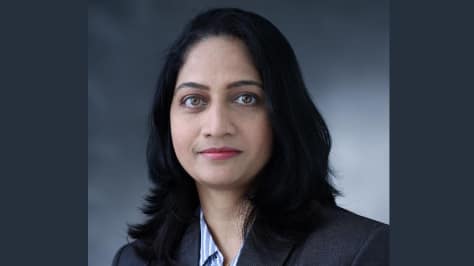Bhadbhade is ensuring tighter working capital cycles through initiatives like MyBill, and her mandate is to steer green infrastructure as DHL Express India aims to electrify at least 66% of its last-mile delivery vehicles by 2030, with focus on profitability, sustainability, digital transformation.

Anjali Bhadbhade, Chief Finance Officer, DHL Express India
For Anjali Bhadbhade, CFO of DHL Express India, as a woman, having a seat at the table is not enough; it's about making your voice heard with conviction, clarity, and data-backed insights. That philosophy shapes both her approach to mentoring the next generation of women in finance and her own leadership journey.
“These qualities not only help you navigate challenges but also earn you credibility and trust from peers and decision-makers,” she said in an email interaction with FE CFO.
In this interview, FE CFO explores Bhadbhade’s priorities as a finance chief and her innovation in working capital strategy through tech. “Our emphasis is on ramping up profitability through disciplined execution and yield management,” she shared. Edited excerpts.
In 2025-2026, what are the top strategic priorities for the CFO of DHL Express India, particularly on how the industry is growing in India?
Our top strategic priorities are shaped by two major forces — India’s rapid economic growth and the accelerating pace of technological disruption in logistics. Therefore, we will focus on accelerating sustainable growth, optimising capital deployment, and advancing digital transformation.
Additionally, through Strategy 2030, DHL Group is set to expand its presence globally in geographies that are set to benefit from supply chain diversification or foreign and domestic investments. In fact, there are 20 such markets and India is one of them.
This strategy also emphasises ramping up profitability through disciplined execution and yield management.
The logistics industry in India is entering a phase where speed, transparency, and sustainability will be the differentiators. Our strategic focus is to stay ahead of that curve, enabling our teams with the tools, infrastructure, and financial flexibility.
What kind of impact are you seeing on working capital, billing cycles, or compliance due to the 'My bill' initiative?
The move to digital billing through MyBill has transformed how we handle invoicing and payment cycles, both from an operational and a customer experience standpoint.
This has eliminated delays associated with paper invoicing, sped the payment cycle, and improved cash flow visibility.
For customers, this flexibility and convenience mean faster settlement and fewer administrative bottlenecks. MyBill also incorporates on-platform dispute resolution, allowing any billing queries to be logged and addressed quickly. Features such as auto-pay and mobile app integration make the entire process proactive and predictable.
These changes have tightened our working capital cycles, reduced administrative overheads, and ensured greater compliance accuracy. For our customers, it has enhanced transparency, improved payment discipline, and delivered a smoother, more efficient experience, with efficiency, liquidity, and trust.
With growing focus on sustainable logistics, how are you making decisions on allocating capital for green infrastructure such as EV fleets, solar-powered facilities, or LEED-certified hubs?
As our Strategy 2030 focuses specifically on being a “green logistics of choice”, which is also one of the four bottom lines, we take our environmental responsibility seriously and are the first in the industry to set targets against our goals.
Based on the year 2021, we aim to:
reduce greenhouse gas (GHG) emissions to less than 29 million metric tons of carbon by 2030, from 40 million metric tons based on 2021;
target at least 30% Sustainable Aviation Fuels (SAF) blending in our Express and Global Forwarding businesses by 2030;
electrify at least 66% of our last-mile delivery vehicles by 2030; and
Leverage a carbon-neutral design for all new buildings
DHL’s decisions on investing in sustainability are always prioritised whenever the solution is viable and makes commercial sense for the business.
What does it take for women finance leaders to not just have a seat at the table, but a voice that’s heard? And how are you helping the next generation of women in finance get there with confidence and conviction? How do you mentor or motivate the next generation of women in finance to show up with confidence and clarity?
Having a seat at the table is only the first step, but making your voice heard requires a combination of preparation, confidence, and the conviction to back your ideas with data and insight.
In my own journey, I have learned the importance of being vocal about my contributions, actively seeking opportunities, and embracing change with an open mind. These qualities not only help you navigate challenges but also earn you credibility and trust from peers and decision-makers.
When mentoring the next generation of women in finance, I encourage them to view challenges as opportunities for growth and to never wait for recognition to come to them. Instead, they should advocate for themselves and their work. I also stress the value of building strong support networks, seeking mentorship, and learning continuously.
By instilling this mindset, I aim to help women show up with clarity, communicate their perspectives with confidence, and take ownership of their professional growth. True influence comes from pairing expertise with the courage to speak up, even in the most challenging rooms.
Empower your business. Get practical tips, market insights, and growth strategies delivered to your inbox
By continuing you agree to our Privacy Policy & Terms & Conditions
